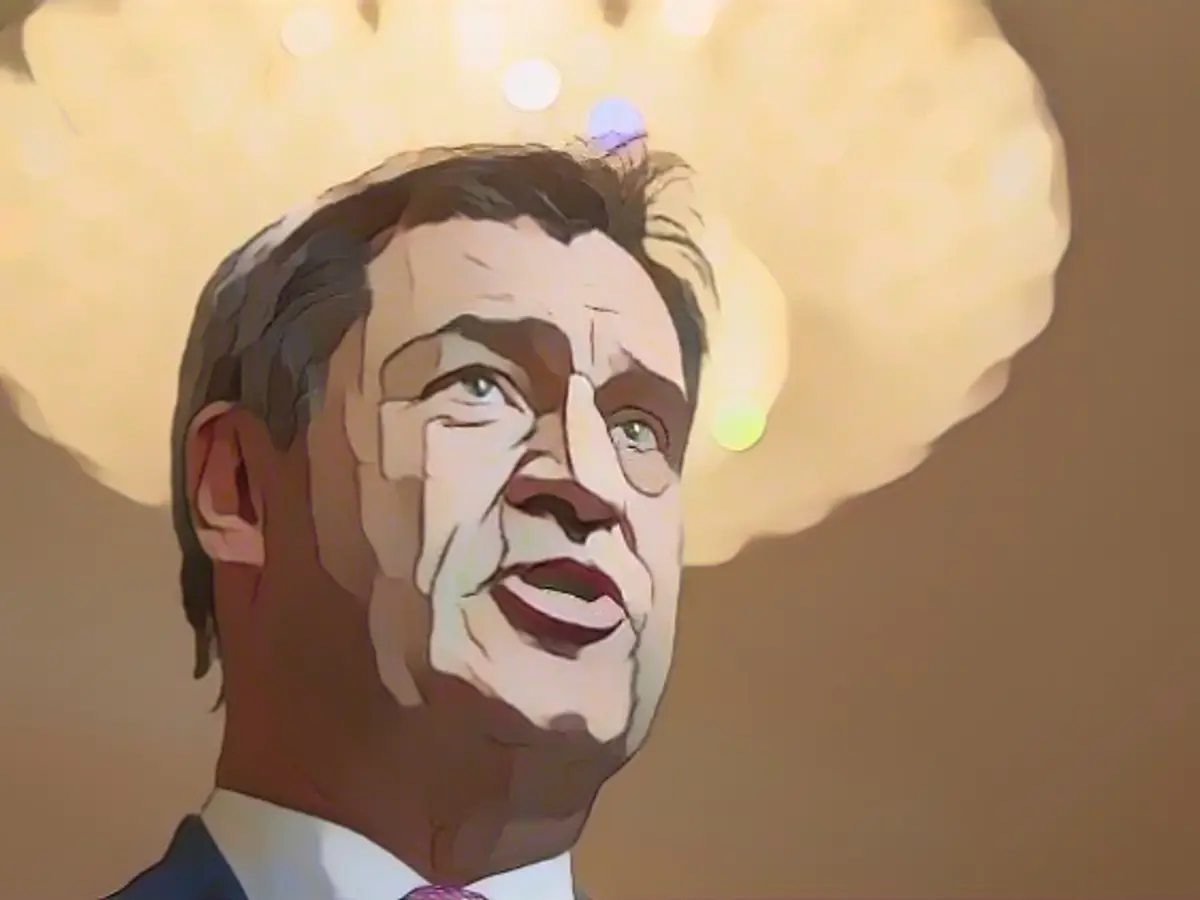"We are in a veritable state crisis"
The federal government's budget crisis has escalated. The budget negotiations in the Bundestag planned for next week have been put on hold. Bavaria's Minister President Söder sits down with Markus Lanz and is very worried.
"We are in a veritable national crisis," says Bavaria's Minister President Markus Söder from the CSU, summarizing the current situation in Berlin. Following the budget ruling by the Federal Constitutional Court and the freezing of two so-called "special funds", the government has to think about how it wants to save money in the coming years. A softening or suspension of the debt brake is also being discussed. In the meantime, the base of the FDP's coalition partner wants to vote on whether the party should remain in the federal government. Many experts believe a break-up of the traffic light coalition is possible. Bavaria's Minister President Markus Söder comments on the situation on Markus Lanz.
Söder sees the country facing two problems. "One is that a government is de facto incapable of acting, in my opinion through its own fault, due to the ruling of the Federal Constitutional Court. And the second is that we have no real economic strategy for dealing with this and no strategy at all for strengthening SMEs and the economy in Germany." Both of these factors are leading to deep uncertainty, says Söder: "Nothing seems to be going right in Germany at the moment. The government isn't doing anything, and it's the same in soccer. Both rather bleak prospects."
He is curious to see how the government will behave now, says the Bavarian Minister President. Söder misses a government strategy, and apparently the Federal Chancellor too. "I urgently advise the Federal Chancellor to finally make a government statement." He added that the government must now finally create some kind of emergency or present savings targets.
Where Söder wants to make savings
"There are a number of possibilities," says Söder on savings in the budget. For example, he suggests not increasing the citizen's allowance and scrapping the heating law. The basic child benefit should also not come into force. However, deputy editor-in-chief of Die Welt, Robin Alexander, argues that this is currently of no use at all, as it is not due to come into force until 2025 anyway.
"I'm really worried," says Söder time and time again. If the government doesn't act now, it could strengthen the AFD even further, he says. However, Söder is clearly not in favor of new elections in the current crisis. "I already said weeks ago: Scholz should basically dismiss the partners he has now. We would be ready to perhaps take responsibility in the emergency situation. That was all rejected."
He did not answer whether Söder would go to Berlin under these circumstances. But at the moment it doesn't look that way. The responsibility lies first and foremost with CDU leader Friedrich Merz, he says on Lanz. And: "My aim is not to simply smash a government in order to gain an advantage. Unfortunately, they already do that themselves. But we also have a political interest in this country functioning."
Söder wants to take in fewer refugees
It is not really clear at the moment whether the current budget crisis is also affecting the support of the federal states in dealing with the refugee crisis. In any case, Söder sees opportunities to save money. His idea: the basic asylum law should be changed, "it is not designed for the current situation." Söder wants Germany to have regulations similar to those in Denmark, where the Social Democrats there have ensured that significantly more asylum seekers are turned back. He also talks about abolishing pull factors and is in favor of border controls. "These are all huge issues that need to be resolved," said Söder.
Söder, representing the CSU, expresses his concern during an interview with Markus Lanz, stating that the ruling by the Federal Constitutional Court has left the government incapable of acting effectively and without a clear economic strategy. In the budget negotiations, Söder suggests potential savings measures such as not increasing the citizen's allowance, scrapping the heating law, and halting the implementation of the basic child benefit.
Source: www.ntv.de








